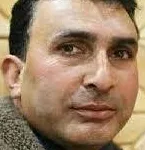Let us awaken our collective conscience to a profound truth—society is not some abstract, distant entity, nor is it the government, the corporations, or “them” out there. It is us. It is woven from the threads of individuals like you and me. Our values, our actions, our daily choices—they are the warp and weft of this vast tapestry.
And yet, when wrongs are committed—tainted meat slipping into the market, counterfeit drugs infiltrating pharmacies, adulterated spices mingling in kitchen shelves, or contaminated drinks finding their way into school canteens—our outrage is immediate but misdirected.
We point fingers at “the culprits” as if they are alien invaders from a moral wasteland, detached from our reality. But they are not strangers from a distant realm. They are our kin, our neighbors, our community members—products of the same soil, nurtured by the same systems, educated (or miseducated) by the same institutions. The uncomfortable truth is this: the wrongdoer is not outside society—they are a reflection of it. And society, remember, is us.
The Mirror We Avoid
Albert Einstein once said, “Your actions speak so loudly that no one hears what you say.” The wisdom in those words pierces the fog of modern life. We live in an age where declarations are plentiful—corporate mottos, political promises, and public awareness campaigns—but where action often limps behind rhetoric. We share viral posts condemning unethical business practices, and yet bargain for the cheapest product without caring whether it is genuine or stolen.
We bemoan the corruption of leaders while slipping an extra note to expedite our own paperwork. We scold the neighbour’s child for littering while tossing our own waste into a stream. It is uncomfortable, but necessary, to look in the mirror and ask: What do my actions say? Over decades, we have accumulated experiences, skills, and values—some consciously, some by osmosis. These are the paradigms that guide us. Yet, when we assess them honestly, we may discover a sobering reality: too often, we have been swept into a current of indifference. We consume without questioning the source. We produce without measuring the consequence. We notice the harmful but choose the convenient.
The Drama Cycle
When a scandal erupts—say, a truckload of counterfeit medicine is seized—we collectively erupt into a performance. There is outrage in the marketplace, debates in the living room, heated talk shows on TV. Authorities issue statements. Social media burns with righteous indignation. And then… nothing.
Like actors stepping off stage, we return to our scripts, our routines. We purchase from the same unverified vendors. We shrug off rumors of quality breaches. The counterfeit, the adulterated, the harmful—they re-enter our lives, camouflaged among the ordinary.
This cycle—the brief moral storm followed by prolonged moral amnesia—is one of the most corrosive forces in modern society. It enables the dishonest to persist, the corrupt to thrive, and the fake to flourish. Worse still, it normalizes the idea that deception is an unavoidable part of life, not a crime against the community’s trust.
Why the Problem Persists
There is a reason why counterfeiters, adulterators, and fraudsters rarely vanish despite law enforcement efforts. The market for their goods exists because of us. We are often willing participants—not necessarily in their production, but in their consumption. And every purchase without scrutiny, every acceptance of “too good to be true” prices, every shrug of “this is how it is” strengthens their hand.
If this were merely an economic inconvenience, perhaps we could dismiss it. But the stakes are far higher. Contaminated food poisons bodies; fake drugs kill; diluted fuel damages livelihoods; forged certificates erode trust in institutions. In the end, these are not victimless acts. They are acts of betrayal—of the community by the community.
The Circle of Influence
The philosopher Stephen R. Covey spoke of the “circle of influence”—the sphere where our actions can make an immediate difference. Too often, we focus on the vast “circle of concern”—global problems we can’t single-handedly fix—while ignoring the local, tangible, personal changes we can make.
The need of the hour is not grand speeches but grounded action. To rise, to be proactive, to focus on our circle of influence. That means beginning with the self.
- Self-Development: Expanding our awareness so we can discern truth from falsehood, genuine from fake.
- Self-Regulation: Exercising restraint when tempted by shortcuts, bargains, or easy gains at the expense of integrity.
- Character Cultivation: Building the inner resolve to do the right thing, even when no one is watching and even when it costs us something.
The Chain Reaction of Integrity
Imagine a world where each individual’s commitment to truth and accountability sparks a chain reaction. It begins quietly—someone refuses to buy from an unverified source; a shopkeeper refuses to stock questionable goods; a teacher integrates ethics into daily lessons; a family refuses to compromise on quality despite higher prices. These small acts accumulate. Individuals evolve into citizens with moral muscle. Families become strongholds of values. Neighbourhoods transform into watchdogs of quality and fairness. Society as a whole becomes less tolerant of deception. The counterfeit loses its market. The corrupt lose their cover. The fake finds no foothold.
Case Study: The Market That Changed Itself
Several years ago, in a small European town, repeated scandals over meat quality led not to yet another round of official crackdowns, but to an extraordinary community-led initiative. Consumers began demanding transparency from butchers and grocers—where was the meat sourced? Was it tested? Shops that could not provide evidence lost customers.
Within six months, nearly every vendor in the town had joined a voluntary certification scheme. Independent inspectors—funded jointly by merchants and residents—regularly audited products. The result was stunning: not only did quality improve, but prices stabilized, as honest sellers were no longer undercut by unscrupulous competitors. This was not a miracle. It was the natural outcome of a society deciding that its values were not for sale.
The Enemy Within
It is tempting to see the enemy as “them”—the dishonest producer, the corrupt official, the careless shopkeeper. But the more dangerous enemy is the tolerance we show toward these practices. Corruption, fraud, and adulteration survive because they are fed by a thousand small acts of complicity:The friend who says, “Just this once, it’s okay.”The customer who thinks, “It’s not my job to check.” The neighbour who shrugs, “This is how it has always been.” Our tolerance is the oxygen that sustains the fire.
Breaking the Cycle
Breaking the cycle requires more than awareness—it requires sustained action. Here are concrete steps:
- Educate Yourself and Others: Understand the signs of counterfeit or adulterated goods. Share this knowledge with friends and family.
- Verify Before You Buy: Support businesses that can prove the authenticity of their products.
- Hold Vendors Accountable: Ask questions. Demand receipts. Report suspicious products to authorities.
- Reward Integrity: Give your loyalty and money to those who maintain ethical practices.
- Model the Change: Live the standards you want to see. Children, peers, and colleagues will notice.
A Vision for the Future
Now, picture this: a society where the mere whisper of adulteration provokes not a brief storm but a sustained movement for change; where every individual is a sentinel of integrity; where businesses compete not on who can cut the most corners, but on who can stand tallest in trustworthiness.
In such a society, counterfeit drugs never reach the shelves because buyers demand verification. Contaminated food fails to sell because consumers ask the right questions. Adulterated products die in warehouses because no one wants them. This is not utopia—it is the logical conclusion of collective moral awakening.
The Legacy We Leave
The choices we make today—what we buy, what we accept, what we tolerate—are not mere personal matters. They are the blueprint of the world our children will inherit. If we choose convenience over integrity, they will inherit a society where deception is the norm. If we choose accountability over apathy, they will inherit a world where honesty has value, and trust is possible. Let us act with purpose, for the legacy of a society is not written by its leaders alone, but by the quiet, daily decisions of its people.
The Final Word
We live in a time of unprecedented interconnectedness, where one person’s choice can ripple across continents. This is a gift and a responsibility. Yes, there will always be those who try to cheat the system. But their power lies not in their cunning, but in our consent—silent, passive, habitual. The moment we withdraw that consent, the cycle weakens.
Our conscience, once awakened, is a formidable force. Let it rise. Let it guide. Let it weave a society where integrity is not the exception but the expectation. For in the end, the truest measure of any civilization is not the wealth it amasses, but the truth it protects.
(Author is Lecturer (English), School Education Department, J&K. Feedback: [email protected])






